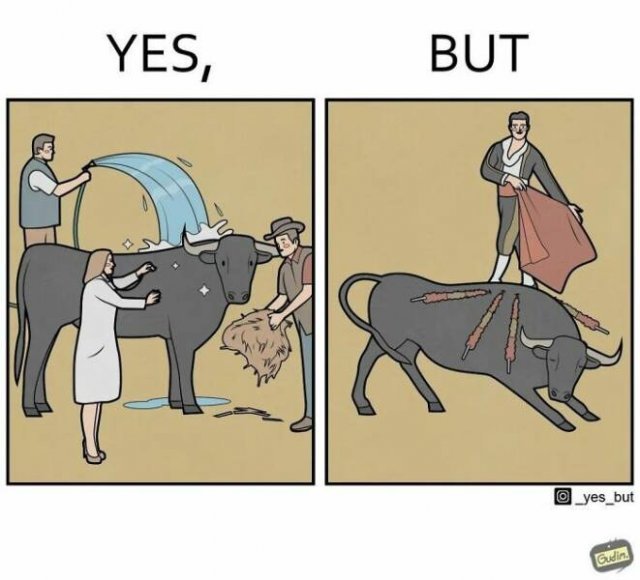Log in
Statistics
We have 477 registered usersThe newest registered user is гераскинс
Our users have posted a total of 48009 messages in 7050 subjects
THAT’S ENTERTAINMENT
CLICK ON ANY OF THESE LINKS TO FIND OUR EXTREME ENTERTAINMENT
UPDATED :
71 WGT TUTORIALS & 32 YOUNG46 TUTORIALS
CLICK HERE TO SEE OVER 100 YOUTUBE VIDEO TUTORIALS . FROM WGTers , WGT & YOUNG46 FORUM UPDATE
TO THE MANY WELCOME GUESTS . THIS FORUM IS NO LONGER A COUNTRY CLUB WEBSITE FOR A WGT COUNTRY CLUB . PLEASE FEEL FREE TO READ THE FORUMS.
THERE ARE MANY TOPICS OF INTEREST . OR NOT . THIS WEBSITE IS AN INFORMATION AND ENTERTAINMENT WEBSITE ONLY .
MUCH OF THE CONTENT IS ARCHIVES OF PURPOSES PAST .
THERE ARE SOME MORE CURRENT TOPICS .
REGISTRATION IS NOT NECESSARY TO READ THROUGHOUT .
REGISTRATION IS EASY AND FREE . THIS IS AN AD FREE WEBSITE . NOTHING IS EVER REQUESTED FROM REGISTERED MEMBERS .
REGISTRATION ENABLES COMMENTING ON TOPICS . POSTING NEW TOPICS . FULL ACCESS TO THE WEBSITE IMAGE HOST . WHICH IS A VERY COMPLETE AND CONVENIENT TOOL .
PLEASE ENJOY .
TIER & AVERAGE REQUIREMENTS
BASIC LEVEL AND AVERAGE REQUIREMENTS , AND SATURATION

WHILE YOUR HERE
WHILE YOUR HERE :
CHECK OUT THE INCREDIBLE PHOTOGRAPHY IN
MY SERIES
THIS USED TO BE THE HOME OF OUR WORLD CLOCK . WHICH CAN NOW BE FOUND IN ITS OWN FORUM ON THE MAIN PAGE ..
THERE ARE MORE WORLD CLOCKS INSIDE HERE .
WORLD CLOCK
FB Like
MENTAL FLOSS * Why Is It Called a “Hamburger” If It Doesn’t Contain Ham? *
Page 1 of 1
 MENTAL FLOSS * Why Is It Called a “Hamburger” If It Doesn’t Contain Ham? *
MENTAL FLOSS * Why Is It Called a “Hamburger” If It Doesn’t Contain Ham? *
Why Is It Called a “Hamburger” If It Doesn’t Contain Ham?
It’s basically all a big linguistic coincidence.

It's a cheeseburger, we know. / (Burger) eli_asenova/E+/Getty Images; (Background) Boris Panov/DigitalVision Vectors/Getty Images; (Question marks) designer29/DigitalVision Vectors/Getty Images



Since hamburgers are famously made from beef, the logical assumption is that their name harks back to some bygone era when they were made from ham. That’s actually not what happened at all—but ham and hamburgers do have a connection of a different sort.
As far back as the early 1600s, Hamburger referred to any person from Hamburg, Germany. The city has a centuries-long history of championing fine beef, and, according to Andrew F. Smith’s book Hamburger: A Global History, Hamburg beef was “an expensive gourmet food” in the 19th century.

The Brooks-Brucke Bridge over the canal in Hamburg. / Bruce Yuanyue Bi/The Image Bank/Getty Images
“One common way to prepare fresh Hamburg beef was to chop it, season it and form it into patties, but it would have to be used immediately,” Smith wrote. Since that wasn’t feasible for far-flung gourmands across Europe and in North America, they’d use non-Hamburg beef for these Hamburg-style beef patties. By the late 19th century, people had started calling them “Hamburg steaks” or “Hamburger steaks.”
It’s unclear who first slapped a Hamburger steak inside some bread to create the modern hamburger; a handful of American cooks have been credited with the innovation. What’s equally possible is that it wasn’t any one person: Hamburger steaks were often served with bread, so it seems natural that multiple people would have the bright idea to make a handheld meal from those elements. In any case, hamburgers of the sandwich variety gained popularity in the early 20th century, and eventually, hamburger—as a shortening of hamburger steak—came to refer to them.
Had the shortening ended there, people today might have an easier time remembering the connection between hamburgers and Hamburg—and be less inclined to wonder how ham fits into the picture. But, of course, the shortening didn’t end there.
At least as early as the 1930s, Americans had started calling hamburgers “burgers.” You can hardly fault them for that; hamburger is a misleading name for a food item whose main ingredient isn’t ham, but a completely different meat. Plus, this way, burger could become a customizable root word: Cheeseburger showed up in the written record around the same time, and vegeburger followed in the 1940s.

A cook making burgers at the National Rice Festival in Crowley, Louisiana, 1938. / Historical/GettyImages
It’s pretty amusing that hamburgers got so firmly disassociated from the city that inspired them because people unwittingly broke the word into the wrong parts. Hamburger originated as Hamburg and the suffix -er, but then fractured into ham and burger.
Linguists have a name for this kind of misguided morpheme splitting: rebracketing. Helicopter is another example. The word came into English by way of the French hélicoptère, formed from the Greek helix (“spiral”) and pteron (“wing”). So helicopter should technically be split into helico- and -pter. Instead, we’ve rebracketed it as heli- and -copter and appropriated the latter as its own nickname for a helicopter—and also as a customizable root word (think gyrocopter). Hamburgers and helicopters have more in common than you thought.
All this to say that no, hamburgers weren’t originally made from ham. But they may at least be etymologically related to the meat. Ham gets its name from hamma, an Old High German word for the back of the knee. One theory about the ham of Hamburg is that it’s also derived from hamma, “in a transferred sense of ‘bend, angle,’ with reference to [the city’s] position on a river bend promontory,” per the Online Etymology Dictionary.
The other leading theory is that it comes from the Middle High German hamme, or “enclosed area of pastureland.” Really, it’s a full-circle moment either way—because what better to keep in a gated pasture than cattle?
It’s basically all a big linguistic coincidence.
By Ellen Gutoskey | May 30, 2024

It's a cheeseburger, we know. / (Burger) eli_asenova/E+/Getty Images; (Background) Boris Panov/DigitalVision Vectors/Getty Images; (Question marks) designer29/DigitalVision Vectors/Getty Images
Since hamburgers are famously made from beef, the logical assumption is that their name harks back to some bygone era when they were made from ham. That’s actually not what happened at all—but ham and hamburgers do have a connection of a different sort.
From Steak to Sandwich
As far back as the early 1600s, Hamburger referred to any person from Hamburg, Germany. The city has a centuries-long history of championing fine beef, and, according to Andrew F. Smith’s book Hamburger: A Global History, Hamburg beef was “an expensive gourmet food” in the 19th century.

The Brooks-Brucke Bridge over the canal in Hamburg. / Bruce Yuanyue Bi/The Image Bank/Getty Images
“One common way to prepare fresh Hamburg beef was to chop it, season it and form it into patties, but it would have to be used immediately,” Smith wrote. Since that wasn’t feasible for far-flung gourmands across Europe and in North America, they’d use non-Hamburg beef for these Hamburg-style beef patties. By the late 19th century, people had started calling them “Hamburg steaks” or “Hamburger steaks.”
It’s unclear who first slapped a Hamburger steak inside some bread to create the modern hamburger; a handful of American cooks have been credited with the innovation. What’s equally possible is that it wasn’t any one person: Hamburger steaks were often served with bread, so it seems natural that multiple people would have the bright idea to make a handheld meal from those elements. In any case, hamburgers of the sandwich variety gained popularity in the early 20th century, and eventually, hamburger—as a shortening of hamburger steak—came to refer to them.
Had the shortening ended there, people today might have an easier time remembering the connection between hamburgers and Hamburg—and be less inclined to wonder how ham fits into the picture. But, of course, the shortening didn’t end there.
Hold the Ham
At least as early as the 1930s, Americans had started calling hamburgers “burgers.” You can hardly fault them for that; hamburger is a misleading name for a food item whose main ingredient isn’t ham, but a completely different meat. Plus, this way, burger could become a customizable root word: Cheeseburger showed up in the written record around the same time, and vegeburger followed in the 1940s.

A cook making burgers at the National Rice Festival in Crowley, Louisiana, 1938. / Historical/GettyImages
It’s pretty amusing that hamburgers got so firmly disassociated from the city that inspired them because people unwittingly broke the word into the wrong parts. Hamburger originated as Hamburg and the suffix -er, but then fractured into ham and burger.
Linguists have a name for this kind of misguided morpheme splitting: rebracketing. Helicopter is another example. The word came into English by way of the French hélicoptère, formed from the Greek helix (“spiral”) and pteron (“wing”). So helicopter should technically be split into helico- and -pter. Instead, we’ve rebracketed it as heli- and -copter and appropriated the latter as its own nickname for a helicopter—and also as a customizable root word (think gyrocopter). Hamburgers and helicopters have more in common than you thought.
All this to say that no, hamburgers weren’t originally made from ham. But they may at least be etymologically related to the meat. Ham gets its name from hamma, an Old High German word for the back of the knee. One theory about the ham of Hamburg is that it’s also derived from hamma, “in a transferred sense of ‘bend, angle,’ with reference to [the city’s] position on a river bend promontory,” per the Online Etymology Dictionary.
The other leading theory is that it comes from the Middle High German hamme, or “enclosed area of pastureland.” Really, it’s a full-circle moment either way—because what better to keep in a gated pasture than cattle?
 Similar topics
Similar topics» MENTAL FLOSS * Why Is It Called an “Elevator Pitch”? *
» INTRO TO MENTAL FLOSS
» MENTAL FLOSS * The 10 Most Commonly Misunderstood Slang Terms *
» CDP's IT REALLY DOESN'T MATTER
» IT DOESN'T MATTER WHAT YOUR NAME IS
» INTRO TO MENTAL FLOSS
» MENTAL FLOSS * The 10 Most Commonly Misunderstood Slang Terms *
» CDP's IT REALLY DOESN'T MATTER
» IT DOESN'T MATTER WHAT YOUR NAME IS
Page 1 of 1
Permissions in this forum:
You cannot reply to topics in this forum
 Events
Events















































































» INTRO TO WORD SMARTS
» PINTEREST ICONIC COMIX
» HISTORY FACTS * Gold wasn't always the top Olympic medal *
» Word Genius Word of the day * occlude *
» JULY NATIONAL CELEBRATION DAYS JULY 26 2024
» QUIZ TREAT QUIZ *Which mammal has the most powerful bite? *
» QUIZ TREAT ANSWER PAGE
» NAT GEO * The 2024 Olympics will likely be the hottest ever *
» NAT GEO * Sharks found with cocaine in their systems *
» WISE TRIVIA QUIZ *What was the first song ever played on the radio? *
» WISE TRIVIA ANSWER PAGE
» E.S.Etaski * Sister Seekers Book 10 now available everywhere! *
» WORD DAILY Word of the Day: * literatim *
» JULY NATIONAL CELEBRATION DAYS JULY 25 2024